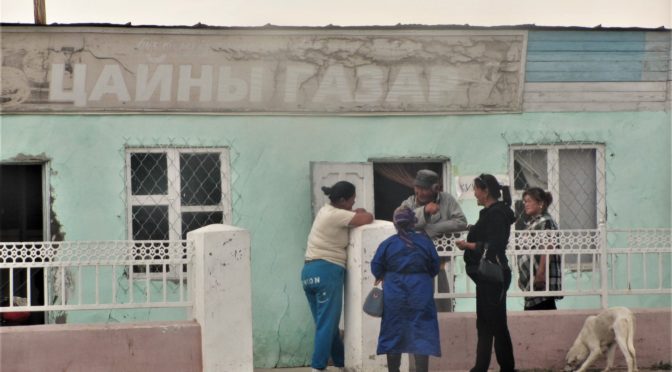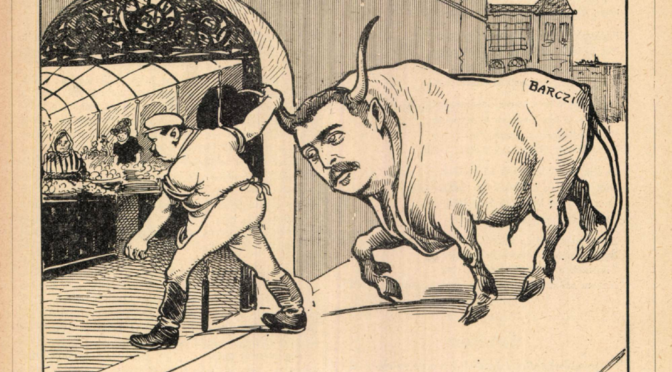
Véronique Gruca (CEFRES / University Paris-Nanterre)
will be taking part at Franco-Czech historical seminar organized by CEFRES and Charles University
Date : Thursday February 18 , 9h-12h30
Where: CEFRES and online (see below)
Organisators : CEFRES and Charles University
Language : French
Pour vous connecter, inscrivez vous auprès de Jaroslav.svatek@ff.cuni.cz
Too see the programme, click here to visit the website.
Click here to join the Zoom meeting : https://cesnet.zoom.us/j/96694269885

Jérôme Heurtaux, CEFRES
will be taking part in the seminar called Current Issues. Reflection on Crises coorganised by CEFRES and the Institute for International Studies of the Faculty of Social Sciences at Charles University in Prague.
Date: Wednesday February 17th 2021, 11:00 to 12:20
Place: Online on Zoom
Organisators: Maria Kokkinou (post-doc at CEFRES / Charles University), Jérôme Heurtaux (CEFRES)
Language: French
To join the Zoom meeting, please click here:
https://cesnet.zoom.us/j/94466941213
Code : 944 6694 1213
For more information about the seminar, click here: http://cefres.cz/fr/seminaires/penser-les-crises.

The 11th session of FSV / CEFRES seminar “Reflecting on Crises” will be hosted by:
Maria Kokkinou, CEFRES / IMS FSV UK
Florence Vychytil-Baudoux, EHESS / associate at CEFRES
Subject: “Migration Crises” in the Light of History and Anthropology
Where: online.
For any question, please contact the organizers: maria.kokkinou@cefres.cz
When: Wednesday, December 16th, 12:30-13:50pm
Language: French
As part of the seminar “Enjeux contemporains. Penser les crises” / Current Issues. Reflecting on Crises, organized by Maria Kokkinou (CEFRES / UK) and Jérôme Heurtaux (CEFRES):
Presentation of the seminar:
The crisis has the wind in its sails: due to the appearance and extensive spread of Covid-19 in 2020, this concept has regained worldwide attention, last observed during the financial crisis of 2009. Apart from these spectacular moments of global turmoil, we can no longer count the events or phenomena that are described as crises.
A concept inextricably linked to modernity, a “crisis” (pre)occupies our societies in all its dimensions. The polysemic uses of the term and its very topicality prompt us to revisit this concept, its different meanings and uses. This seminar course is devoted to this task. It will involve the intervention of researchers from various disciplines – political sociology, history, art history, anthropology, philosophy, etc.
What realities are qualified as “crises” and in which ways are they critical? What is a crisis and how to explain its emergence? How does a crisis unfold, what are its effects and consequences? Why do crises give rise to conflicts of interpretation over their meaning? Is the notion of crisis a central operator of our modernity and a key to understanding the challenges that contemporary societies face?

10th session of FSV / CEFRES seminar “Reflecting on Crises” will be hosted by:
Claire Madl (CEFRES)
Subject: Crisis of reading or media revolution?
Where: online.
For any question, please contact the organizers: maria.kokkinou@cefres.cz
When: December 9, Wednesday, 12:30-1:50pm
Language: french
As part of the seminar:
“Enjeux contemporains. Penser les crises” / Current Issues. Reflecting on Crises
organized by Maria Kokkinou (CEFRES / UK) and Jérôme Heurtaux (CEFRES):
Presentation of the seminar:
The crisis has the wind in its sails: due to the appearance and extensive spread of Covid-19 in 2020, this concept has regained a world-wide attention, last observed during the financial crisis of 2009. Apart from these spectacular moments of global turmoil, we can no longer count the events or phenomena that are described as crises.
A concept inextricably linked to modernity, a “crisis” (pre)occupies our societies in all its dimensions. The polysemic uses of the term and its very topicality prompt us to revisit this concept, its different meanings and uses. This seminar course is devoted to this task. It will involve the intervention of researchers from various disciplines – political sociology, history, art history, anthropology, philosophy, etc.
What realities are qualified as “crises” and in which ways are they critical? What is a crisis and how to explain its emergence? How does a crisis unfold, what are its effects and consequences? Why do crises give rise to conflicts of interpretation over their meaning? Is the notion of crisis a central operator of our modernity and a key to understanding the challenges that contemporary societies face?

The 9th session of FSV / CEFRES seminar “Reflecting on Crises” will be hosted by:
Michèle Baussant (CNRS, CEFRES)
Topic: “Here is a place that has left its place”: Memories of the Vanquished, Traces of Crises and Decolonial Wars
Where: online.
To register, please contact the organizers: maria.kokkinou@cefres.cz
When: Wednesday, December 2nd, 12:30-1:50pm
Language: French
As part of the seminar:
“Enjeux contemporains. Penser les crises” / Current Issues. Reflecting on Crises
organized by Maria Kokkinou (CEFRES / UK) and Jérôme Heurtaux (CEFRES)
Presentation of the seminar:
The crisis has the wind in its sails: due to the appearance and extensive spread of Covid-19 in 2020, this concept has regained a world-wide attention, last observed during the financial crisis of 2009. Apart from these spectacular moments of global turmoil, we can no longer count the events or phenomena that are described as crises.
A concept inextricably linked to modernity, a “crisis” (pre)occupies our societies in all its dimensions. The polysemic uses of the term and its very topicality prompt us to revisit this concept, its different meanings and uses. This seminar course is devoted to this task. It will involve the intervention of researchers from various disciplines – political sociology, history, art history, anthropology, philosophy, etc.
What realities are qualified as “crises” and in which ways are they critical? What is a crisis and how to explain its emergence? How does a crisis unfold, what are its effects and consequences? Why do crises give rise to conflicts of interpretation over their meaning? Is the notion of crisis a central operator of our modernity and a key to understanding the challenges that contemporary societies face?

The 8th session of FSV / CEFRES seminar “Reflecting on Crises” will be hosted by:
Mátyás Erdélyi (CEFRES / Charles University)
Topic: The Making of Crises in History: The Case of Inflation
Where: online.
To register, please contact the organizers: maria.kokkinou(@)cefres.cz
When: Wednesday, November 25th, 12:30-1:50pm
Language: French
As part of the seminar:
“Enjeux contemporains. Penser les crises” / Current Issues. Reflecting on Crises
organized by Maria Kokkinou (CEFRES / UK) and Jérôme Heurtaux (CEFRES)
Presentation of the seminar:
The crisis has the wind in its sails: due to the appearance and extensive spread of Covid-19 in 2020, this concept has regained a world-wide attention, last observed during the financial crisis of 2009. Apart from these spectacular moments of global turmoil, we can no longer count the events or phenomena that are described as crises.
A concept inextricably linked to modernity, a “crisis” (pre)occupies our societies in all its dimensions. The polysemic uses of the term and its very topicality prompt us to revisit this concept, its different meanings and uses. This seminar course is devoted to this task. It will involve the intervention of researchers from various disciplines – political sociology, history, art history, anthropology, philosophy, etc.
What realities are qualified as “crises” and in which ways are they critical? What is a crisis and how to explain its emergence? How does a crisis unfold, what are its effects and consequences? Why do crises give rise to conflicts of interpretation over their meaning? Is the notion of crisis a central operator of our modernity and a key to understanding the challenges that contemporary societies face?






